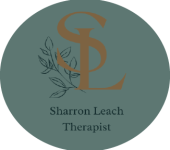Couples Therapy
- Communication issues: Effective communication is crucial for healthy relationships, but you may find you struggle to express your thoughts, feelings, and needs clearly. You may have difficulty listening actively or may avoid conflict, leading to misunderstandings, unresolved issues, and a lack of emotional connection.
- Trust issues: Past experiences of betrayal, abandonment, or trauma can lead to trust issues in relationships. You may find it challenging to trust others, constantly questioning their intentions or fearing being hurt again. This can create barriers to forming deep and meaningful connections.
- Fear of intimacy: You may have a fear of intimacy, which can manifest as a fear of emotional vulnerability or a fear of being too close to someone. This fear can lead to emotional distancing, difficulty in forming close bonds, and a tendency to keep relationships superficial.
- Co-dependency: Co-dependency is a pattern of unhealthy reliance on others for self-worth and identity. If you are struggling with co-dependency you may have difficulty setting boundaries, excessively prioritizing the needs of others over your own, and struggle with a sense of self outside of your relationships.
- Insecurity and low self-esteem: Insecurity and low self-esteem can negatively impact relationships. You may constantly seek reassurance, have difficulty accepting love and affection, or engage in self-sabotaging behaviours due to a belief that you are unworthy of love and happiness.
- Conflict resolution difficulties: Conflict is a natural part of any relationship, but you may struggle with resolving conflicts in a healthy and constructive manner. You may even avoid conflict altogether, become defensive or aggressive, or struggle to find a compromise, leading to unresolved issues and relationship strain.
- Attachment issues: How you were parented as a child will heavily influence how you form and maintain relationships. If you experienced unsafe, insecure, anxious or avoidant attachment styles with your parent/s, it will likely lead to difficulties in forming secure and fulfilling relationships in adulthood. This is not always something you would be aware of.
- Unhealthy relationship patterns: You may find yourself repeatedly engaging in unhealthy relationship patterns, such as attracting partners who are emotionally unavailable or abusive. These patterns can stem from unresolved issues most often from childhood, low self-worth, or a lack of awareness of healthy relationship dynamics.
It is important to note that relationship struggles can be complex and multifaceted. You are not taught how to have relationships or how to resolve conflict within them.
The most important relationship you should have is the one with yourself for when that improves you develop healthier relationship skills, and are able to foster more fulfilling connections with others.
FAQ
What is therapy?
Therapy, also known as counseling or psychotherapy, is a professional relationship between a trained therapist and a client. Its goal is to help individuals overcome emotional or psychological difficulties, make positive changes in their lives.
Why should I consider therapy?
Therapy can be beneficial for various reasons, including managing mental health issues (like depression or anxiety), coping with life changes, improving relationships, and personal growth.
What happens in a therapy session?
Therapy sessions typically involve talking to the therapist about your concerns, feelings, and thoughts. The therapist may ask questions, provide insights, and suggest strategies for addressing your issues.
How long does therapy take?
The duration of therapy varies depending on individual needs and goals. Some people benefit from short-term therapy, while others may engage in therapy for several months or even years.
Is therapy confidential?
Yes, therapy is generally confidential. Therapists are bound by ethical guidelines and legal obligations to keep the information shared during sessions private. However, there are some exceptions, such as if a client poses a risk to themselves or others.
Can I benefit from therapy even if I don't have a mental health diagnosis?
Yes, therapy can be beneficial for personal growth, self-improvement, and addressing everyday life challenges, even if you don’t have a diagnosed mental health condition.
Is therapy only for individuals, or can couples and families also benefit?
Therapy is available for individuals, couples, and families. Couples therapy and family therapy can help address relationship issues, communication problems, and family dynamics.
Can I combine therapy with other treatments, like medication?
Yes, therapy can be used in conjunction with other treatments, including medication. This is known as a holistic or integrative approach to mental health care.
Get In touch
07980 734410
available from 09:00 – 20:00
Email hello@sharronleachtherapist.co.uk

